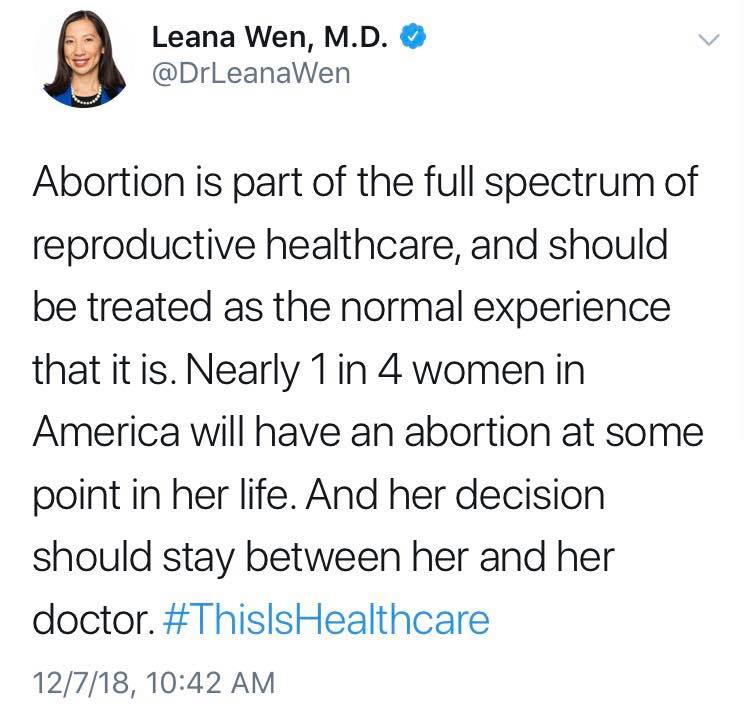By Sarah Terzo
Live Action News

But former abortion workers, even those who are still pro-abortion, have admitted that it is not “normal” health care. Abortion is very different than a Pap smear or a gynecological exam. Health care does not take human lives. And “normal” health care does not typically leave women with emotional trauma.
Jim Sollisch worked in an abortion facility for three years. He is, in his own words, “a longtime supporter of Planned Parenthood, NARAL Pro-Choice America, and the ACLU.” He remains strongly pro-abortion.
READ: Psychiatrists admit: Abortion isn’t ‘health care’ or a form of ‘treatment’
In an article in The Christian Science Monitor, Sollisch writes:
Pro-choice organizations should make it clear that every abortion ends a life, albeit a potential one. They should stop euphemizing and start making it clear that they really understand how emotionally wrenching an abortion can be… .
[I] counseled men accompanying their girlfriends, wives, daughters, and friends to their abortion procedures. I learned to stop emphasizing the medical procedure and just listen. What I heard from many of them was that they were grieving. Some called it a death. Some called it a loss. Only a tiny percentage treated it like a medical procedure.
According to Sollisch, men interpret their partner’s abortions as a “loss” and a “death.” No one responds to an appendectomy or other minor surgery this way. Clearly, it is something very different from routine health care.
Sollisch says the following about other facility workers:
Many of the women who worked at the clinic were mothers. They knew exactly what their patients were giving up. And for the most part, they said so. They weren’t afraid to speak the language of loss. They acknowledged the pain.
Abortion causes emotional pain to women (and men). “Normal” health care does not.
Jewels Green, another former abortion worker, sterilized the instruments in the facility’s autoclave, and had to empty jars of fetal remains when she worked in the industry. She writes about seeing “teeny tiny hands and feet and arms and legs and a rib cage and a spine and a hollow, flattened, misshapen, torn head” up to “30 times a day, four days a week.”
Green started to have terrible nightmares. She describes a conversation with the clinic director:
I was 20 years old when I told the clinic director, “I’m having nightmares. Does anyone else have nightmares when working autoclave?”
She replied, “What we do here is end a life. And if you’re not okay with that, you can’t work here.”Convinced that abortion, although it was killing, helped women, Green stayed. Her pro-life conversion would happen much later.
Both Green and Sollisch, now on opposite sides of the debate, admit that abortion takes a life. (Although Sollisch attempts to muddy the waters by using the words “potential life.”) Both the abortion workers and post-abortive women see it as a loss, even a death.
One psychiatrist, who supports both legal abortion and infanticide, wrote about the post-abortive women she’s treated.
She says, “Every single one of them has suffered horribly. They never forgive themselves.” She goes on to say that feelings of grief and guilt are not limited to religious women: “There may be more fear with the women who are very religious… But the level of grief for women who are even atheist is about the same.”Indeed, studies have shown that many women experience emotional trauma afterwards.
Continue reading here
Voices for Life is an e-publication dedicated to informing and educating the public on pro-life and pro-family issues. To read our Mission Statement, use this link. Follow us on Facebook, Google, and Pinterest. Help us spread the pro-life message by sharing our articles on your favorite social networks.
 National Hotline: Call 1-800-712-HELP or Text 'HELPLINE' to 313131. In Southeast Penna: Call the Community Women's Center at 215-826-8090
National Hotline: Call 1-800-712-HELP or Text 'HELPLINE' to 313131. In Southeast Penna: Call the Community Women's Center at 215-826-8090
If you or someone you know is suffering after abortion, confidential non-judgmental help is available. Call Project Rachel's national toll-free number 888-456-HOPE (4673) or visit hopeafterabortion.org.
Pregnant, need help or know someone who does?
 National Hotline: Call 1-800-712-HELP or Text 'HELPLINE' to 313131. In Southeast Penna: Call the Community Women's Center at 215-826-8090
National Hotline: Call 1-800-712-HELP or Text 'HELPLINE' to 313131. In Southeast Penna: Call the Community Women's Center at 215-826-8090If you or someone you know is suffering after abortion, confidential non-judgmental help is available. Call Project Rachel's national toll-free number 888-456-HOPE (4673) or visit hopeafterabortion.org.

No comments:
Post a Comment